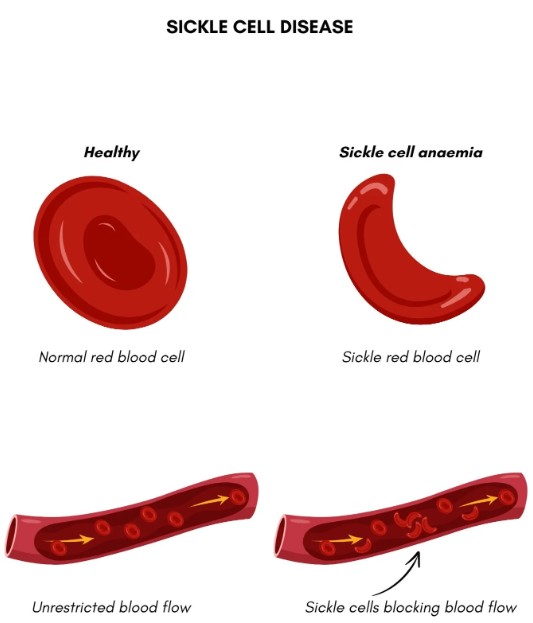The Sickle Cell Condition Advocates (SICCA) has called on religious groups and traditional leaders to support and educate their congregants on sickle cell in their various denominations and traditional areas.
SICCA made the call at the Presbyterian Women’s Center, Abokobi, during the Presbyterian Church of Ghana’s (PCG) annual Department of Development and Social Services (DSS) delegates’ Conference.
Madam Charlotte Owusu, the Founder of SICCA, noted that sickle cell disease was a major health concern in Ghana, affecting thousands of individuals and their families, and despite the various efforts to raise awareness and provide support, there remained a significant gap in knowledge and resources.
She mentioned that SICCA’s mission was to bridge the gap by providing education, counselling and direct services to those who were already affected, as well as advocate for prevention through the pre-conception screening.
Madam Owusu reiterated that sickle cell disease was a major health concern in Ghana, affecting thousands of individuals and their families, and despite the various efforts to raise awareness and provide support, there remains a significant gap in knowledge and resources.
She mentioned that SICCA’s mission was to bridge the gap by providing education, counselling, and direct services to those who were already affected and advocate for prevention through the pre-conception screening.
She highlighted that, over the years, sickle cell patients had experienced some barriers with some district hospitals not being able to provide basic care for sickle cell disease patients, coupled with the lack of proper education for these patients.
Madam Owusu said that because religious groups and SICCA had a wide reach and influence, they could create a great opportunity to share important information and services about sickle cell disease.
She stated that the religious groups and traditional rulers must organise sensitisation programmes, establish sickle cell support groups, provide workshops and training sessions, and launch fundraising campaigns to support sickle cell patients medically.
She also called on them to take ownership of the sickle cell disease campaign and prevention, by providing access to counselling for the patients and members in the various communities and denominations.
Madam Owusu noted that her organisation, which was dedicated to addressing some of the challenges associated with sickle cell disease, had intensified education, counselling and raising awareness about the disease.
The goal was to improve the quality of life for affected individuals and their families and work towards the long-term eradication of the condition through pre-conception screening.
Madam Owusu added that, because most people were connected to different religious groups and SICCA, they could use this chance to share important information and services about sickle cell disease widely.
Mr William Darkeh, a Sickle Cell patient and a father of a child with the condition, noted that intensive education and sensitisation must target especially prospective married couples, to ensure they knew their statuses prior to their union and childbearing.
Mr Darkeh said that the lack of education on the condition was causing a high rise in the disease and increasing the mortality rate of patients.
He also called on the government, religious bodies, and philanthropists to support him financially so he could care for his 18-year-old son, who had been bedridden because of the condition.
By Lawrencia Akoto Frempong
GNA









